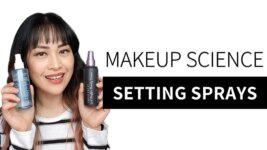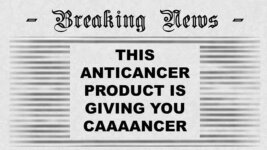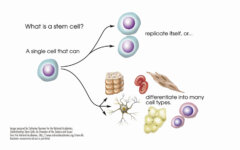This was a talk I gave on 15 September 2021 for Ventech’s panel on Scientific Literacy and the Price of Misinformation.
I talked about my insights on debunking myths over the last 10 years of Lab Muffin (yeah I’m old), how there’s financial incentive for many brands to bust beauty myths and communicate science, and the larger public health implications of beauty misinformation.
Check it out on YouTube here. If you prefer a transcript, you can get to it by pressing the three dots under the video at the bottom right, and click “open transcript”.






I think this was your best post ever! Misinformation spreads like wildfire and I’m happy you’re fighting it. It’s sad that marketing gets in the way of science.
This whole matter of parabens did make me laugh with delight at the time. I was able to scoop up loads of very pricey, beautiful brand products which were being thrifted cheap due to this black balling or parabens. Bring on the misinformation!! That’s where the bargains will be 🙂
As consumers we are so fortunate to have truth tellers like yourself. The SM audience are given recommendations by experts without the audience having knowledge of what and where the experts information is coming from. For example,US dermatologists.
As an Aussie I’ve always known we have the most stringent testing regime for sunscreens (probably through one of your blogs), but it’s hard to convince the rest of the world of that. I have always appreciated every word you’ve written and I hope you continue to do this!
I kind of take issue with you correlating the people who believe “clean beauty” with the people who believe vaccine misinformation. Or more so is your reasoning of we shouldn’t be basing toxicity to humans on animal studies. In many cases, especially in cases of determining a teratogen, animal studies are the only thing we can go off of since it is unethical to study toxicity to human fetuses on… well human fetuses. Take the popular new hotly debated vaccine that everyone is talking about. The only study I can find where they tested if it was a teratogen is a study on rats. Many people INCLUDING DOCTORS are recommending this vaccine to pregnant women and women looking to become pregnant stating the vaccine has be “proven” safe in animal studies. Multiple issues here. 1, the only species tested is rats, not a non rodent species. 2. Even if multiple species were tested, as you say. We are not these species. So my point is, anti-vaxxers are not necessarily anti science. Or vaccine cautious people are not anti-science. It could be that they actually do understand science and the process and the issues with that process. It COULD be that, they are actually listening to you when you say not to base toxicity on animal studies.
Hopefully this is not a surprise to you, but there’s been a plethora of work done by toxicologists in translating animal studies to human impacts, especially when it comes to teratogens, and especially when it comes to vaccines that are rolled out to massive numbers of people including toxicologists and people they care about. Science isn’t just about studies on Pubmed, it’s also about being able to interpret these studies (and the ones that aren’t published in peer-reviewed journals, like what’s done in drug approvals) and apply them to real situations, and respecting that the skills of the community of highly trained experts who are performing and scrutinising these analyses are superior to people without the same educational background. Ignoring this process and just pointing to abstracts of studies is indeed anti-science.
Hi Michelle!
Great video! I think a lot of us recently learned how hard it actually is to debunk misinformation and convince people, as we all became amateur debunkers.
The other day a friend told me that it was “pointless to get a covid test because after the Pfizer vaccine she would test positive anyway because of the vaccine”🤦🏻♀️ let me tell you, I learned that I’m NOT an educator and explaining to her how vaccines work was quite the struggle bus.
Your strategies you briefly touched on in the vid (getting to the core of the misunderstanding, empathy, tidying up lose ends) was already extremely helpful on how to tackle these type of conversations better next time!